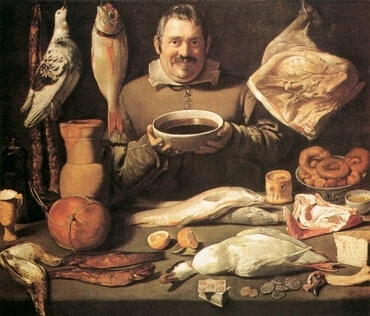1
Y habló el SEÑOR a Moisés, diciendo:
2
Habla a los hijos de Israel, y diles: Las fiestas del SEÑOR, a las cuales haréis convocación general de todo el pueblo, estas serán mis fiestas.
3
Seis días se trabajará, y el séptimo día será sábado de reposo, convocación santa; ninguna obra haréis; sábado es del SEÑOR en todas vuestras habitaciones.
4
Estas son las fiestas del SEÑOR, las convocaciones santas, a las cuales convocaréis en sus tiempos determinados .
5
En el mes primero, a los catorce del mes, entre las dos tardes, pascua al SEÑOR.
6
Y a los quince días de este mes es la fiesta de los ázimos al SEÑOR; siete días comeréis ázimos.
7
El primer día tendréis santa convocación; ninguna obra servil haréis.
8
Y ofreceréis al SEÑOR siete días ofrenda encendida; el séptimo día será santa convocación; ninguna obra servil haréis.
9
Y habló el SEÑOR a Moisés, diciendo:
10
Habla a Israel, y diles: Cuando hubiereis entrado en la tierra que yo os doy, y segareis su mies, traeréis al sacerdote un homer por primicia de los primeros frutos de vuestra siega;
11
el cual mecerá el homer delante del SEÑOR, para que seáis aceptos; el siguiente día del sábado lo mecerá el sacerdote.
12
Y el día que ofrezcáis el homer, ofreceréis un cordero de un año, sin defecto, en holocausto al SEÑOR.
13
Con su presente, dos décimas de flor de harina amasada con aceite en ofrenda encendida al SEÑOR para olor aceptable; y su libación de vino, la cuarta parte de un hin.
14
Y no comeréis pan, ni grano tostado, ni espiga fresca, hasta este mismo día, hasta que hayáis ofrecido la ofrenda de vuestro Dios; estatuto perpetuo es por vuestras edades en todas vuestras habitaciones.
15
Y os habéis de contar desde el siguiente día del sábado, desde el día en que ofrecisteis el homer de la ofrenda mecida; siete semanas cumplidas serán;
16
hasta el siguiente día del sábado séptimo contaréis cincuenta días; entonces ofreceréis nuevo presente al SEÑOR.
17
De vuestras habitaciones traeréis dos panes para ofrenda mecida, que serán de dos décimas de flor de harina, cocidos con levadura, por primicias al SEÑOR.
18
Y ofreceréis con el pan siete corderos de un año sin defecto, y un novillo de la vacada y dos carneros; serán holocausto al SEÑOR, con su presente y sus libaciones, en ofrenda encendida de olor muy aceptable al SEÑOR.
19
Ofreceréis además un macho cabrío por expiación; y dos corderos de un año en sacrificio de paz.
20
Y el sacerdote los presentará en ofrenda mecida delante del SEÑOR, con el pan de las primicias, y los dos corderos; santidad serán del SEÑOR para el sacerdote.
21
Y convocaréis en este mismo día; os será santa convocación; ninguna obra servil haréis; estatuto perpetuo en todas vuestras habitaciones por vuestras edades.
22
Y cuando segareis la mies de vuestra tierra, no acabarás de segar el rincón de tu campo, ni espigarás tu siega; para el pobre, y para el extranjero la dejarás. Yo soy el SEÑOR vuestro Dios.
23
Y habló el SEÑOR a Moisés, diciendo:
24
Habla a los hijos de Israel, y diles: En el mes séptimo, al primero del mes tendréis sábado, una conmemoración al son de trompetas, y una santa convocación.
25
Ninguna obra servil haréis; y ofreceréis ofrenda encendida al SEÑOR.
26
Y habló el SEÑOR a Moisés, diciendo:
27
Pero a los diez de este mes séptimo será el día de las expiaciones; tendréis santa convocación, y afligiréis vuestras almas, y ofreceréis ofrenda encendida al SEÑOR.
28
Ninguna obra haréis en este mismo día; porque es día de expiaciones, para reconciliaros delante del SEÑOR vuestro Dios.
29
Porque toda persona que no se afligiere en este mismo día, será cortada de su pueblo.
30
Y cualquiera persona que hiciere obra alguna en este mismo día, yo destruiré la tal persona de entre su pueblo.
31
Ninguna obra haréis; estatuto perpetuo será por vuestras edades en todas vuestras habitaciones.
32
Sábado de sábados será a vosotros, y afligiréis vuestras almas, comenzando a los nueve del mes en la tarde; de tarde a tarde reposaréis vuestro sábado.
33
Y habló el SEÑOR a Moisés, diciendo:
34
Habla a los hijos de Israel, y diles: A los quince días de este mes séptimo será la fiesta de los tabernáculos al SEÑOR por siete días.
35
El primer día será santa convocación: ninguna obra servil haréis.
36
Siete días ofreceréis ofrenda encendida al SEÑOR; el octavo día tendréis santa convocación, y ofreceréis ofrenda encendida al SEÑOR; es fiesta, ninguna obra servil haréis.
37
Estas son las fiestas del SEÑOR, a las que convocaréis; santas convocaciones, para ofrecer ofrenda encendida al SEÑOR, holocausto y presente, sacrificio y libaciones, cada cosa en su tiempo;
38
además de los sábados del SEÑOR de cada semana y además de vuestros dones, y a más de todos vuestros votos, y además de todas vuestras ofrendas voluntarias, que daréis al SEÑOR.
39
Pero a los quince del mes séptimo, cuando hubiereis recogido el fruto de la tierra, haréis fiesta al SEÑOR por siete días; el primer día será sábado; y el octavo día también será sábado.
40
Y tomaréis el primer día gajos con fruto de algún árbol hermoso, ramos de palmas, y ramas de árboles espesos, y sauces de los arroyos; y os regocijaréis delante del SEÑOR vuestro Dios por siete días.
41
Y le haréis fiesta al SEÑOR por siete días cada año; será estatuto perpetuo por vuestras edades; en el mes séptimo la haréis.
42
En tabernáculos habitaréis siete días; todo natural de Israel habitará en tabernáculos;
43
para que sepan vuestros descendientes que en tabernáculos hice yo habitar a los hijos de Israel, cuando los saqué de la tierra de Egipto. Yo soy el SEÑOR vuestro Dios.
44
Así habló Moisés a los hijos de Israel de las fiestas del SEÑOR.







